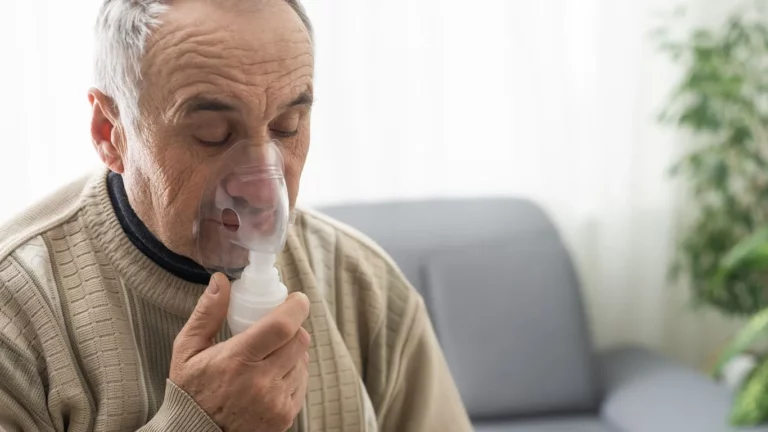Can Certain Perfumes Worsen Asthma? Top Tips to Avoid Triggers for Better Breathing
As an asthma expert with years of experience in respiratory health, I’ve often been asked whether certain perfumes can worsen asthma. The simple answer is: yes, they can. But let’s dig deeper into why this is and what you can do about it if you’re an asthma sufferer who loves a good fragrance. It might surprise you that the very thing that gives you a lovely, lingering scent could trigger a range of symptoms for someone with asthma. So, grab a cup of tea (or maybe some fresh air), and let’s explore this topic in detail.
Understanding the Impact of Perfumes on Asthma
Perfumes are designed to smell amazing, but their chemical compositions can sometimes be a bit of a nightmare for those with asthma. The fragrances in perfumes are often made up of a mixture of natural oils, synthetic chemicals, and alcohol. While these ingredients are harmless to most people, they can be irritating to those with sensitive respiratory systems.

For many asthma sufferers, exposure to certain perfumes can lead to a number of troubling symptoms. These symptoms may include coughing, wheezing, shortness of breath, chest tightness, or even full-blown asthma attacks. The worst part? It’s not always easy to pinpoint which perfumes might be causing the reaction. It could be the floral notes in one, or perhaps the musky base in another. And sometimes, it can be the combination of ingredients that sets off the alarm bells.
What’s in a Perfume That Triggers Asthma?
Let’s break it down a bit more. When you inhale a fragrance, whether it’s from a perfume, air freshener, or scented candle, you’re breathing in various compounds. Some of these are harmless, but others can irritate your airways and trigger asthma symptoms. Here’s a quick overview of some key ingredients that might be the culprit:
- Alcohol: Alcohol is used as a solvent in many perfumes. It can cause dryness in the nasal passages and throat, which might aggravate asthma symptoms.
- Synthetic Fragrances: These chemicals are used to create scents that mimic natural aromas. Unfortunately, many synthetic fragrances contain volatile organic compounds (VOCs), which can be irritating to the lungs.
- Essential Oils: While natural, some essential oils—like lavender and eucalyptus—can trigger asthma symptoms in sensitive individuals. These oils may cause inflammation and irritation in the airways.
- Fixatives: These ingredients help the fragrance last longer, but they can sometimes cause allergic reactions, especially in people with asthma.
So, next time you catch a whiff of a new perfume, remember that it’s not just about the pleasant scent. It’s about the chemicals and compounds that make up that scent. If you have asthma, your body might see these substances as invaders, causing inflammation in your respiratory system.
The Role of Airborne Allergens in Perfumes
One of the sneaky ways perfumes can worsen asthma is by acting as a carrier for airborne allergens. The microscopic particles released when you spray a perfume into the air can become part of the allergens you breathe in. These particles can carry pollen, dust, or even mold spores, all of which are common asthma triggers.

If you suffer from asthma and are particularly sensitive to environmental allergens, perfumes can make your symptoms worse by adding additional irritants into the air. This is why it’s essential to keep track of when and where you wear certain fragrances, especially if you know you’re going to be in a space with high allergen levels.
Perfumes and Asthma: My Personal Experience
Let me share a little personal experience here. As someone who specializes in asthma care, I’ve had my share of encounters with fragrance-related triggers. I remember a few years ago when I attended a professional event. It was supposed to be a relaxing and informative day, but I couldn’t get comfortable due to the overwhelming scents of perfumes wafting through the air.
Although I don’t have asthma myself, I’ve witnessed firsthand how certain fragrances can throw off people with respiratory issues. I noticed that some of the attendees were noticeably more uncomfortable, coughing or adjusting their inhalers more often as the day went on. The culprit was clear: the strong perfumes filling the room. For many, this wasn’t just a mild inconvenience; it was a trigger for asthma symptoms, and I saw a few people struggle to regain control of their breathing.
Why Some Perfumes Are Worse Than Others for Asthma
While every individual’s asthma triggers are different, there are certain perfumes that tend to be more problematic than others. Strong floral scents, for example, can cause more irritation for people with asthma than lighter, more subtle scents. The reason for this is that floral fragrances often contain compounds that are known to irritate the respiratory system, such as aldehydes and esters. These compounds can be particularly potent when mixed with other synthetic chemicals in a perfume.
- Floral Scents: As mentioned, floral fragrances often contain compounds like aldehydes and esters that can irritate the airways.
- Heavy Musky Notes: Musky perfumes tend to have a stronger scent profile that can linger in the air for longer periods, increasing the likelihood of triggering asthma symptoms.
- Citrusy Scents: While refreshing, citrus-based fragrances contain acids that may cause irritation in the respiratory tract of some individuals.
If you’re an asthma sufferer, it might be worth considering a fragrance-free lifestyle or opting for perfumes with more natural ingredients. Trust me, your lungs will thank you!

What Can You Do to Avoid Asthma Triggers in Perfumes?
Now that we know how perfumes can worsen asthma symptoms, let’s talk about how to protect yourself. You don’t have to give up on fragrances altogether, but it’s important to be mindful of how they might affect your respiratory health.
How to Choose a Perfume That’s Asthma-Friendly
If you love perfume but struggle with asthma, the good news is you don’t have to give up on fragrances completely. There are ways to select a scent that’s less likely to trigger your asthma symptoms. Over the years, I’ve learned a few tricks and tips on how to choose asthma-friendly perfumes, and I’m happy to share them with you. It’s all about being more mindful of the ingredients, scent profiles, and application methods.

Look for Natural, Hypoallergenic Ingredients
First things first, always try to choose perfumes made with natural ingredients and those specifically labeled as hypoallergenic. These perfumes are less likely to contain harsh chemicals or artificial fragrances that could irritate your lungs. Many high-end perfume brands now offer natural lines, using essential oils and plant-based ingredients that are gentler on the respiratory system. However, keep in mind that even natural ingredients like lavender or eucalyptus, which are often used in essential oils, can still trigger asthma for some people, so it’s important to test the scent before committing.
Additionally, you should look for brands that offer transparent ingredient lists. A good perfume brand will always be upfront about what’s in their product, helping you avoid any mystery chemicals. If you’re unsure about a specific ingredient, don’t hesitate to reach out to the brand and ask for more details.
Opt for Lighter, Subtle Scents
When it comes to choosing a perfume that won’t worsen your asthma, a lighter scent is always a safer bet. Strong, overpowering perfumes can flood your senses and irritate your lungs. I know this from personal experience. Some of the most intense reactions I’ve had during my asthma consultations have been linked to heavy perfumes with intense floral or musky notes. It’s like your lungs just can’t keep up with the strength of the fragrance.
Instead, try opting for perfumes with subtle, fresh, and clean scents. Think soft citrus notes, light florals, or even herbal-based perfumes. These tend to be more breathable and less likely to trigger your asthma. You might also want to consider fragrances that are categorized as “eau de toilette” rather than “eau de parfum,” as they typically contain a lower concentration of fragrance oils and are less intense.

Choose Non-Aerosol or Roll-On Options
When you apply perfume, the method you use can make a big difference in how it affects your asthma. Aerosol sprays can release tiny particles into the air, which might irritate your lungs or trigger asthma symptoms, especially in enclosed spaces. On the other hand, roll-on perfumes are a much safer option for asthma sufferers. With roll-ons, you apply the fragrance directly to your skin, which limits the amount of airborne fragrance that you breathe in.
If you love a good spray but want to minimize the risks, try spraying the perfume on your clothes instead of directly onto your skin. This can reduce how much of the fragrance is inhaled, although you should still be cautious about the type of perfume you choose. Just be mindful not to overspray and create an overwhelming scent cloud around you!
Strategies to Minimize Exposure to Perfumes in Daily Life
Sometimes, it’s not just about the perfumes you wear but also about how you navigate a world full of scents. If you have asthma, being surrounded by fragrances can sometimes feel like a battle. But don’t worry—there are ways to minimize your exposure while still smelling fresh when needed. Let me walk you through some practical tips that can make a big difference.
Be Cautious in Public Spaces
Perfumes are everywhere—in stores, on public transportation, at work, and at social events. If you’re an asthma sufferer, these public places can quickly turn into triggers. I’ve spoken to many asthma patients who feel overwhelmed by strong perfumes in the workplace or at gatherings. The key is to be proactive and cautious.
- Wear a mask: It might seem a little unusual, but wearing a mask in public places can help block out the scent molecules that might trigger your asthma. It’s a small step that can make a huge difference.
- Communicate with others: Don’t be afraid to politely ask people to refrain from wearing strong perfumes around you, especially in enclosed spaces. Most people are understanding once they know how much it affects your health.
- Choose open spaces: If possible, spend time in well-ventilated areas or outdoor spaces where air circulation helps reduce the concentration of perfumes and other irritants in the air.
It might take a little getting used to, but adjusting your surroundings can make your daily life a lot easier and more comfortable. You don’t have to let fragrances control your asthma. You just need a bit of strategy.
Use Air Purifiers to Filter Out Scents
If you’re sensitive to perfumes at home, an air purifier can be a game-changer. These devices can help clear the air of unwanted chemicals, allergens, and airborne scents. I’ve personally recommended air purifiers to asthma patients who’ve experienced perfume-related reactions at home. By running an air purifier in your bedroom, living room, or other frequently used spaces, you can reduce the number of irritants floating around in the air and create a more asthma-friendly environment.
When choosing an air purifier, make sure it has a HEPA filter (high-efficiency particulate air) and is designed to remove volatile organic compounds (VOCs), which are often found in perfumes. This can help minimize the chances of exposure to any perfumes lingering in the air.
When to Seek Professional Help for Asthma Symptoms
If you’ve noticed that your asthma symptoms are worsening after exposure to certain perfumes, it’s important to consult with a healthcare professional. They can help you assess the severity of your symptoms and offer specific advice on managing your asthma triggers. Don’t hesitate to make an appointment if you feel like your symptoms are becoming difficult to control or if you’ve had a recent asthma attack that you suspect was triggered by fragrances.
Remember, asthma is a manageable condition. With the right strategies and knowledge, you can reduce the likelihood of perfume-induced flare-ups and lead a more comfortable life. My role as an asthma expert is to help people understand their triggers and find solutions that work for them. If perfume is a major trigger for you, don’t be discouraged. There are many ways to make adjustments, and with the right approach, you can breathe easy again.
Understanding Asthma Triggers Beyond Perfumes
While perfumes are a known culprit for triggering asthma symptoms, they’re not the only thing that can aggravate your condition. In my years of experience working with asthma patients, I’ve come to realize that asthma triggers are unique to each individual. What sets off one person might not bother another. However, there are a few common environmental factors that are often linked to asthma flare-ups. Understanding and avoiding these triggers is key to managing asthma effectively.

Common Asthma Triggers
In addition to perfumes, several other substances and situations can set off asthma symptoms. Some are obvious, while others may surprise you. Let’s go over some of the most common asthma triggers that you should be mindful of:
- Allergens: Pollen, mold, dust mites, and pet dander are common asthma triggers, particularly for people who suffer from allergic asthma. When these allergens are inhaled, they can cause inflammation in the airways, leading to coughing, wheezing, or difficulty breathing.
- Cold Air: Cold, dry air can cause the airways to tighten, leading to asthma symptoms. If you’re going to be outside in the cold, it’s a good idea to wear a scarf over your nose and mouth to warm the air before it reaches your lungs.
- Smoke: Both cigarette smoke and secondhand smoke can irritate your airways and increase your risk of an asthma attack. It’s essential to avoid smoking areas or places where smoke is prevalent.
- Strong Weather Changes: Sudden temperature and humidity changes can trigger asthma. For example, moving from a heated home to a cold, damp outdoor environment can cause an asthma attack for some individuals.
- Exercise: Physical activity can trigger asthma in some people, particularly if they exercise in cold or dry air. This is called exercise-induced bronchoconstriction (EIB). But don’t let that scare you away from staying active. With proper management, most people with asthma can still engage in physical activity safely.
These are just a few examples, but there are many other potential asthma triggers out there. What’s crucial is learning to identify your specific triggers and avoid them when possible. It’s all about prevention and managing your condition in a way that fits your lifestyle.
Managing Asthma Effectively: A Holistic Approach
Now that we’ve discussed how perfumes and other environmental factors can worsen asthma, let’s talk about how you can manage asthma more effectively. Over the years, I’ve found that taking a holistic approach to asthma management works best. This means addressing not only the immediate triggers but also incorporating long-term strategies that improve your overall respiratory health.
Medication and Inhalers
One of the most important parts of asthma management is the use of medication. As an asthma expert, I cannot stress enough how important it is to take your medications as prescribed. Inhalers, both rescue (short-acting) and controller (long-acting), play a huge role in controlling asthma symptoms. Rescue inhalers are used for quick relief during an asthma attack, while controller inhalers help reduce inflammation and prevent attacks over the long term.
It’s also crucial to follow up regularly with your healthcare provider to ensure your asthma treatment plan is effective. Asthma can change over time, and your medication needs may shift as well. Don’t hesitate to adjust your treatment plan if you notice your symptoms becoming more frequent or severe.
Monitor Your Asthma Symptoms
Keeping track of your asthma symptoms is another key component of effective management. I always recommend my patients keep an asthma diary or use a digital tool to monitor their symptoms, medication use, and triggers. This way, you’ll have a clear record of when your asthma is acting up, and you can identify any patterns that might point to a specific trigger—whether it’s a particular perfume or a change in weather. Monitoring your symptoms can help you manage your condition proactively.
Additionally, if you notice your symptoms worsening or require more frequent use of your rescue inhaler, it’s a signal that you need to reassess your treatment plan with your doctor. Early intervention can prevent more severe asthma attacks down the line.

Creating an Asthma-Friendly Home Environment
In addition to avoiding perfumes and other triggers, creating an asthma-friendly environment at home can make a world of difference. After all, your home is where you spend a lot of time, and making it as asthma-friendly as possible can help you reduce flare-ups and live more comfortably.
Improve Indoor Air Quality
One of the best things you can do for your respiratory health is to improve the air quality in your home. As I’ve mentioned before, an air purifier with a HEPA filter can help remove allergens, pet dander, and other irritants that can trigger asthma symptoms. It’s also a good idea to regularly clean your home, especially in areas where dust and mold are common. Don’t forget to vacuum often using a vacuum cleaner with a HEPA filter to capture dust and debris effectively.
Also, be mindful of the humidity levels in your home. Too much humidity can encourage mold growth, while too little can dry out your airways and make breathing more difficult. Keeping your home’s humidity between 30-50% is ideal for most asthma sufferers.
Establish a No-Smoking Policy
It goes without saying, but for those who live with asthma, creating a smoke-free environment is essential. Secondhand smoke can significantly worsen asthma symptoms, and it’s crucial to ensure that your home and any spaces you frequent remain smoke-free. If you live with a smoker, it’s important to have open conversations about the risks smoking poses to your health and work together to create a healthier living environment.
References
For more information on managing asthma and identifying asthma triggers, I recommend checking out the following resources:
- Health U.S. Asthma Resources
- American Asthma Association
- Centers for Disease Control and Prevention – Asthma
Disclaimer
The content provided in this article is for informational purposes only and is not intended to substitute for professional medical advice, diagnosis, or treatment. Always seek the advice of your physician or other qualified health provider with any questions you may have regarding a medical condition. Never disregard professional medical advice or delay in seeking it because of something you have read in this article.

Bianca Nala is a compassionate Nurse Practitioner with a strong background in primary and respiratory care. As a health writer for Healthusias.com, she combines her clinical expertise with a talent for clear, relatable storytelling to help readers better understand their health. Bianca focuses on topics like asthma, COPD, chronic cough, and overall lung health, aiming to simplify complex medical topics without losing accuracy. Whether she’s treating patients or writing articles, Bianca is driven by a single goal: making quality healthcare knowledge accessible to everyone.







